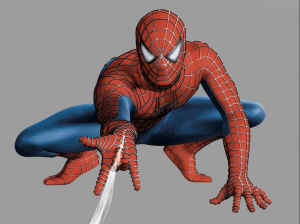Later this month, the Court will hear oral arguments for the patent licensing case Kimble v. Marvel Enterprises, Inc. to decide whether it should overrule Brulotte v. Thys Co. The 1964 Brulotte decision, which has since been widely criticized, held that “a patentee’s use of a royalty agreement that projects beyond the expiration date of the patent is unlawful per se.”
The Kimble case arose from a dispute between inventor Stephen Kimble and Marvel Enterprises over a gloved Spider-Man toy that gives its superhero users the power to shoot webs (foam string) at Green Goblin, Doctor Octopus, and associated villains. Kimble, who developed the gloved toy, alleged that Marvel Enterprises had developed a similar toy that incorporated his patented ideas, as well as other ideas that Kimble had disclosed to Marvel previously. After Kimble filed suit against Marvel alleging patent infringement and breach of contract, the parties eventually agreed to a settlement in which Marvel would purchase the patent for $500,000, plus 3% of net product sales. Importantly, though, the agreement contained no end date or “step down provision” for the 3% royalty payments. This created a conflict with Brulotte because the agreement, in essence, extended the term of Kimble’s patent indefinitely. Accordingly, as soon as the patent term expired, Marvel ceased making payments and Kimble sued for breach of the settlement agreement. Continue reading
